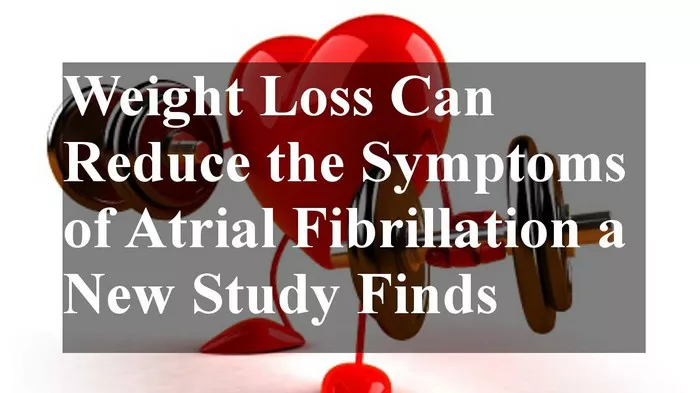Atrial fibrillation, commonly referred to as Afib, is a heart condition characterized by irregular and often rapid heart rate. It affects millions of people worldwide and can significantly impact one’s quality of life. While there are various treatments available for Afib, such as medications and procedures like ablation, there is growing interest and evidence suggesting that weight loss may play a significant role in managing and even potentially reversing this condition.
Understanding Atrial Fibrillation (Afib)
Before delving into the relationship between weight loss and Afib, it’s crucial to understand what Afib is and how it affects the heart. Afib occurs when the electrical signals that control the heart’s rhythm become chaotic, leading to irregular heartbeats. This can result in symptoms such as palpitations, shortness of breath, fatigue, and dizziness. Afib is also associated with an increased risk of stroke and other cardiovascular complications.
The Link Between Weight and Afib
Obesity and excess weight have long been recognized as significant risk factors for cardiovascular diseases, including Afib. The mechanisms underlying this link are complex but generally involve the strain that excess weight puts on the heart. Obesity is associated with inflammation, insulin resistance, high blood pressure, and other metabolic abnormalities, all of which can contribute to the development and progression of Afib.
Research Findings
Numerous studies have investigated the relationship between weight loss and Afib, with many demonstrating promising results. For example, a study published in the Journal of the American College of Cardiology found that weight loss of at least 10% of body weight was associated with a significant reduction in Afib burden. This reduction was attributed to improvements in cardiac structure and function, as well as a decrease in inflammation and oxidative stress.
Another study published in Circulation showed that weight loss achieved through a combination of diet and exercise was effective in reducing Afib recurrence rates in individuals with obesity. The participants who lost weight experienced fewer Afib episodes and had better overall heart health compared to those who did not lose weight.
Mechanisms of Action
The beneficial effects of weight loss on Afib can be attributed to several mechanisms:
1. Reduced Cardiac Strain: Excess weight puts added strain on the heart, leading to structural changes that can predispose individuals to Afib. Weight loss alleviates this strain, allowing the heart to function more efficiently.
2. Improved Metabolic Profile: Weight loss is often accompanied by improvements in metabolic parameters such as blood glucose levels, lipid profile, and blood pressure. These improvements contribute to a healthier cardiovascular system and may reduce the risk of Afib.
3. Decreased Inflammation: Obesity is associated with chronic inflammation, which plays a role in the development of Afib. Weight loss has been shown to reduce inflammation markers, potentially reducing the risk of Afib and its complications.
4. Better Autonomic Balance: Weight loss can lead to improvements in autonomic nervous system function, which regulates heart rate and rhythm. This improved balance may help prevent the onset or recurrence of Afib.
Weight Loss Strategies for Afib Management
For individuals with Afib who are overweight or obese, weight loss should be considered as part of a comprehensive treatment plan. Here are some strategies that can be effective:
1. Healthy Diet: Focus on a balanced diet rich in fruits, vegetables, lean proteins, and whole grains. Limit intake of processed foods, sugary beverages, and excessive amounts of saturated and trans fats.
2. Regular Exercise: Engage in regular physical activity, such as brisk walking, swimming, cycling, or aerobics. Aim for at least 150 minutes of moderate-intensity exercise per week, as recommended by health guidelines.
3. Behavioral Changes: Adopt healthy behaviors such as mindful eating, portion control, stress management, and adequate sleep. These lifestyle changes can support long-term weight management and overall well-being.
4. Medical Supervision: Consult with healthcare professionals, including cardiologists, nutritionists, and exercise physiologists, for personalized guidance and monitoring during weight loss efforts.
Conclusion
While weight loss alone may not completely eliminate Afib in all cases, it can play a significant role in managing the condition and reducing its impact on cardiovascular health. Combined with other therapies and lifestyle modifications, weight loss can contribute to improved heart function, reduced Afib episodes, and a better overall prognosis for individuals with this common heart rhythm disorder. As always, individuals with Afib should consult with their healthcare providers for personalized recommendations and treatment plans tailored to their specific needs and circumstances.
In conclusion, the relationship between weight loss and Afib is a promising area of research and clinical practice, offering new avenues for improving outcomes and quality of life for individuals living with this condition.

